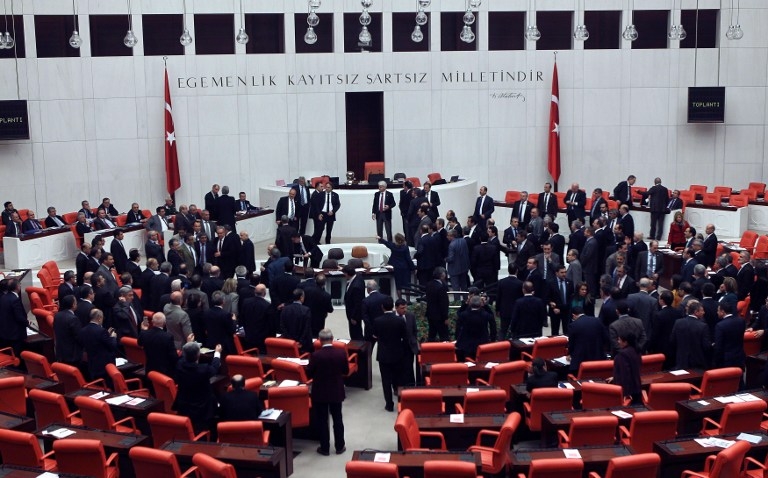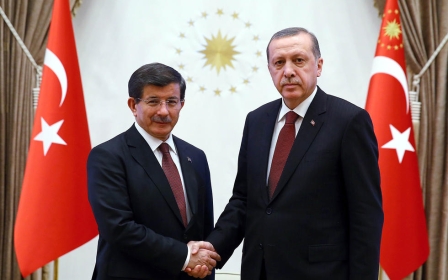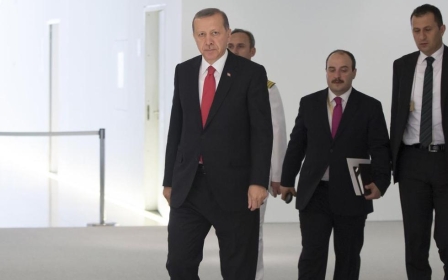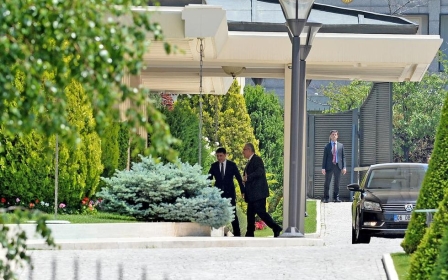Turkey's new parliament opens as coalition nears

Turkey's new parliament on Tuesday will hold its first session after elections in which the ruling party lost its overall majority, with the contours of a coalition government becoming clearer but far from agreed.
The results of the 7 June vote mean that Turkey is bracing for a coalition for the first time since the ruling Justice and Development Party (AKP) came to power in 2002.
The opening of the single-chamber parliament, the Grand National Assembly, is a largely ceremonial affair, with each of the 550 deputies individually swearing oath in a marathon event starting at midday GMT that risks dragging on into the early hours of the morning.
But the meeting also fires a starting shot for the parties' formal efforts to agree a coalition after an election seen as one of the more seismic events in Turkish politics in recent years.
It also starts the process to elect the new parliament speaker, with parties set to propose their candidates in the next five days.
While the AKP emerged as the largest party, the results were a blow not only to its authority but also to President Recep Tayyip Erdogan, who had been hoping the new parliament would agree on a new constitution to cement his powers.
The AKP have 258 seats in the 550-seat parliament, the Republican People's Party (CHP) 132, and the Nationalist Movement Party (MHP) and pro-Kurdish People's Democratic Party (HDP) 80 apiece.
'Avoid another election'
Turkish media reports have said that Erdogan will this week give Prime Minister and AKP leader Ahmet Davutoglu the mandate to form the new government.
Should the parties fail to form a coalition within 45 days, Erdogan can then call early elections, an option he has warned he will use should the talks fail.
"It's possible this process may take until the middle of August. I believe Turkey cannot endure such a loss of time, so I encourage the formation of a new government as soon as possible," Erdogan said on Sunday.
"But if politicians are unable to sort this out, then the people are the only recourse to resolve this," he said, referring to possible early elections.
Erdogan cited the chaos engulfing neighbours Syria and Iraq to encourage the parties to form a government quickly, adding that the economy also seemed ready to accept a coalition government.
"Surrounded by a ring of fire, Turkey must stay strong to avoid harm and help its brothers, so we must quickly complete the post-election period," he said.
"Our parties and their leaders must act responsibly and avoid testing the limits of the economy's patience."
Markets wobble on uncertainty
Critics have accused the head of state of continuing to exercise his influence in parliamentary affairs despite a constitutional ban, but the strongman insists he is acting within his mandate.
"I know how to exercise my powers under the constitution quite well. I don't need orders from anyone on this," he said.
Turkish markets, which took a beating in the wake of the polls on fears of instability, will be hoping for a swift resolution to the uncertainty.
"Our thesis is that we will avoid another election and a credible coalition will be formed around mid-July," said the chief Turkey equity strategist for Renaissance Capital, Michael Harris.
AKP overtures to MHP
By far the most likely coalition option is between the AKP and the nationalist MHP, who both share a core voter base of conservatives in the centre of the country.
"Nothing is certain yet. Intentions have been announced by some but no official contact has been made," an MHP source told AFP.
The Posta newspaper claimed over the weekend that an agreement had already been reached between the MHP and AKP, with the job of foreign minister set to go to former presidential candidate and MHP MP Ekmeleddin Ihsanoglu.
Davutoglu denied that any deal had been reached but after a bruising election campaign insisted he was open to a coalition.
"Our doors are not closed, our mind is not closed, our ears are not closed, our heart is not closed," he said.
Middle East Eye propose une couverture et une analyse indépendantes et incomparables du Moyen-Orient, de l’Afrique du Nord et d’autres régions du monde. Pour en savoir plus sur la reprise de ce contenu et les frais qui s’appliquent, veuillez remplir ce formulaire [en anglais]. Pour en savoir plus sur MEE, cliquez ici [en anglais].




